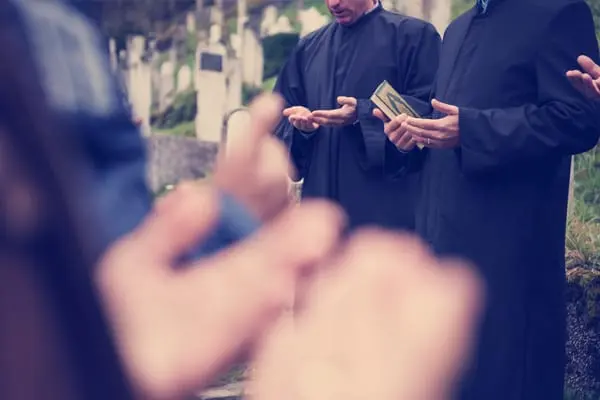Sunni Funeral Traditions
Sunni Funeral Traditions
One of the main reasons so many families come to Thomas Miller Mortuary & Crematory when a loved one dies is because they know we have the experience and knowledge to take care of their family – no matter what their cultural or religious backgrounds are.
As the oldest continuing business in Corona, our professional staff has spent decades serving our neighbors in Riverside County during some of their most difficult moments. This includes our Muslim neighbors and friends, who hold fast to their belief that their good deeds in life will grant them entry into paradise and the reward of ultimate peace in the afterlife.
When a Muslim is approaching death, family and friends gather in support. At the time of death, they cover their loved one with a white sheet. Funeral planning begins immediately, as Shariah law says burial should take place as soon as possible. Exceptions can be made when the person did not die of natural causes and the cause of death needs to be determined.


Learn More About Sunni Funeral Traditions
Because cremation is forbidden for Muslims, a traditional burial is arranged. The body is washed three times by a spouse or a close family member of the same gender and then wrapped in three large, white sheets. This is followed by Salah, or prayer, which is one of the five pillars of Islam.
The funeral usually takes place at the family’s mosque, with community members performing funeral prayers. An imam, or worship leader, presides over the service, which includes readings from the Quran. The deceased is then transported to the cemetery for burial and turned to face Mecca, the holy center of Islam.
Once in the grave, those in attendance place three handfuls of soil into the grave. A small stone or marker is placed on top for recognition.
After the burial, the immediate family will hold a reception, receiving visitors at home and preparing a meal. The mourning period usually lasts 40 days. Widows are expected to observe a mourning period for over four months.
Do you have questions about our services or wish to know more about the funeral traditions of different ethnicities and cultures? Check out the multicultural services page on our website or reach out to us any time. We are always available to help.
